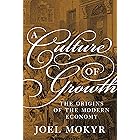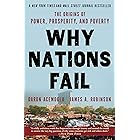| Digital List Price: | $39.99 |
| Kindle Price: | $29.99 Save $10.00 (25%) |
| Sold by: | Amazon.com Services LLC |
Your Memberships & Subscriptions

Download the free Kindle app and start reading Kindle books instantly on your smartphone, tablet, or computer - no Kindle device required.
Read instantly on your browser with Kindle for Web.
Using your mobile phone camera - scan the code below and download the Kindle app.

OK
 Audible sample Sample
Audible sample Sample 


Islam, Authoritarianism, and Underdevelopment: A Global and Historical Comparison Kindle Edition
- ISBN-13978-1108419093
- PublisherCambridge University Press
- Publication dateAugust 1, 2019
- LanguageEnglish
- File size4529 KB
Customers who bought this item also bought
Editorial Reviews
Review
Honorable Mention of SSSR's Book Award
Included in Times Literary Supplement's Books of the Year 2022
"[Kuru's book] has taken the Muslim intellectual world by storm...What is the lesson to be drawn from Kuru's rich and fascinating book? He says, there is no other way than to have an open and democratic society, a competitive economy. This is not westernization, on the contrary, it is totally in line with the spirit of Islam...Wise words from this brilliant Muslim scholar."
Julia Suryakusuma, Jakarta Post
"Kuru...undertakes an ambitious and, on balance, successful analysis of the ills of the authoritarianism, economic backwardness, and religious violence that plague 49 Muslim-majority states."
John Waterbury, Foreign Affairs
"...the citations are a gold mine...it might be helpful to not look at this as a book, but rather more of a proposal for a research program. And, due to Kuru's fastidious and comprehensive approach, he succeeds at both! The result...is a masterpiece and a gift to the field."
Ann Wainscott, Politics and Religion
"Kuru's new book is a ground-breaking history and analysis of the evolution of the state in Muslim countries. Thoroughly researched and accessibly written."
James M. Dorsey, New Books Network
"According to Kuru's thesis, an unholy alliance of religious scholars and statesmen is mainly to blame for the authoritarianism and backwardness of the Muslim world."
Musa Bagrac, Qantara (Germany)
"[A] well researched and thought-provoking book."
Ammar Ali Qureshi, Dawn (Pakistan)
"[Kuru] challenges arguments that see Islam as the cause of low levels of socioeconomic development in Muslim-majority states."
Bassem Aly, Al-Ahram Weekly (Egypt)
"...a fresh and convincing perspective in a debate that has become circular and stale."
Claire Sadar, Ahval
"[It] is a tour de force that lays out the broader context for the failures of the contemporary Muslim world and the ways in which religion can shape political outcomes."
A.Kadir Yildirim, Perspectives on Politics
"[It] offers a succinct yet full overview of multiple centuries of political and intellectual history. It will give scholars of historical political economy much to ponder in thinking about trade, religion, and state building in the Muslim world and beyond."
Elizabeth R. Nugent, Political Science Quarterly
"...meticulously researched, clearly argued and a great addition to any bookshelf."
Emily Silcock, Washington Report on Middle East Affairs
"A magnum opus; it appears to be a product of painstaking inquiries, enormous bibliographical research, nuanced historical comparisons, and interdisciplinary analyses."
Serhan Tanrıverdi, Turkish Studies
"Kuru's book is an important and bold intervention in a vital question that has received scholarly attention for a long time."
Gulay Turkmen, Peace Review
"[It] is without doubt a momentous, groundbreaking contribution to the study of the Muslim world as well as Islamic intellectual history."
Mustafa Gökçek, Global Intellectual History
"Kuru's attempt to go after big questions has given us an indispensable book for anyone who may want to understand past, present, and future of Muslim societies."
Turan Kayaoglu, The Review of Faith & International Affairs
"Kuru backs his claims with an impressive bibliography...[I]t is the broad nature of the work, in addition to the author's avoidance of post-modernist jargon, which makes the book such a delight to read."
John Calvert, Journal of Church and State
"This is a must-read book for those who are eager to learn the root-causes of stagnation and turmoil that have swept through most of the Muslim-majority countries."
Dilshod Achilov, British Journal of Middle Eastern Studies
"A well-researched and meticulously written book that provides significant insights."
Erdem Dikici, Islam and Christian-Muslim Relations
"[It]is undoubtedly a very important contribution with many provocative arguments. This book has likely already secured a place in any syllabus on Muslim societies."
Gokhan Bacik, Digest of Middle East Studies
"Ahmet Kuru has done an amazing job of navigating through the academic minefield with aplomb in answering some of the questions that many even would not dare to pose. This book is undoubtedly one of the best I have read for some time."
Dipak Gupta, Terrorism and Political Violence
"[It] is a must-read study for anyone interested in political science, history and various other social science branches...I must stress the exhaustiveness of this book's bibliography."
Ahmet Erdi Öztürk, Democratization
"Without doubt, Kuru's book is a must-read study and a pivotal source."
Abdelaziz El Amrani, Hespéris-Tamuda
"[T]his is a fascinating, complex and rich book. [It does] a sterling job of identifying how the secularists and Islamist actors have both contributed to the enduring marginalisation of intellectuals and the bourgeoisie in Muslim societies."
Asif Mohiuddin, The Muslim World Book Review
"[Kuru's] volume is well suited for anyone interested in the Middle East, the Islamic world, or political and development theory--Highly recommended."
Joud Alkorani, Choice
- 'In this far-ranging and original book, Ahmet T. Kuru explores just how it came to pass that the Muslim Middle East in the modern period experienced a dramatic decline in cultural and political dynamism relative to the societies of Western Europe. The question is one that has preoccupied comparative politics and historiography for more than a century. But no scholar has explored the issue with the sociological richness, comparative erudition, or depth of insight Kuru achieves in this book. This is one of the most important works in years on the politics and culture of Muslim modernity, and one that literally transforms the state of our knowledge.'
- 'Generations of thinkers have puzzled over why the Muslim world, once intellectually creative and commercially vibrant, fell behind economically and came to symbolize repressive governance. In this meticulously researched, insightful, and provocative book, Ahmet T. Kuru attributes these interlinked transformations to complex alliances between religious officials and states. Islam, Authoritarianism, and Underdevelopment will captivate scholars in many disciplines, and also the broader public interested in Islam's intellectual, political, and economic roles through the ages.'
- 'In these pages can be found a grand solution to a grand problem - nothing less than The Islam Question, that is, why one religion is prone to violence, authoritarianism, and economic underdevelopment. Kuru sets out to refute the two most publicly prominent positions on this question, essentialism and post-colonialism, by unearthing centuries of political and economic development in Islam and discovering that its contemporary problems result from shifts in religious and political authority of many centuries past. In this courageous and compelling piece of scholarship, Kuru does for religion what great historical sociologists like Barrington Moore and Theda Skocpol did for democracy, dictatorship, and social revolution.'
- 'Ahmet T. Kuru offers a nuanced interpretation of the links between Islam and authoritarianism, in which the religion is not the culprit, but complex socio-political developments are to be blamed for the near-failure of Islamic societies to develop democracy and an innovative economy. His historical analysis sheds new light on a highly important and sensitive debate, and helps us to understand better the deep roots of the Islamic Sonderweg.'
From the Inside Flap
From the Back Cover
About the Author
Product details
- ASIN : B07S9DBZ1R
- Publisher : Cambridge University Press (August 1, 2019)
- Publication date : August 1, 2019
- Language : English
- File size : 4529 KB
- Simultaneous device usage : Up to 4 simultaneous devices, per publisher limits
- Text-to-Speech : Enabled
- Screen Reader : Supported
- Enhanced typesetting : Enabled
- X-Ray : Not Enabled
- Word Wise : Not Enabled
- Sticky notes : On Kindle Scribe
- Print length : 311 pages
- Best Sellers Rank: #975,126 in Kindle Store (See Top 100 in Kindle Store)
- #1,954 in Middle Eastern Politics
- #2,612 in Political Science (Kindle Store)
- #4,596 in World History (Kindle Store)
- Customer Reviews:
About the author

Ahmet T. Kuru is professor of Political Science and director of Center for Islamic and Arabic Studies at San Diego State University. He wrote two award-winning books: "Islam, Authoritarianism, and Underdevelopment: A Global and Historical Comparison" (Cambridge UP, 2019) and "Secularism and State Policies toward Religion: The United States, France, and Turkey" (Cambridge UP, 2009), Kuru’s works have been translated into Arabic, Bengali, Bosnian, Chinese, French, Indonesian, Malay, Persian, and Turkish.
Customer reviews
Customer Reviews, including Product Star Ratings help customers to learn more about the product and decide whether it is the right product for them.
To calculate the overall star rating and percentage breakdown by star, we don’t use a simple average. Instead, our system considers things like how recent a review is and if the reviewer bought the item on Amazon. It also analyzed reviews to verify trustworthiness.
Learn more how customers reviews work on AmazonReviews with images
-
Top reviews
Top reviews from the United States
There was a problem filtering reviews right now. Please try again later.
Dr. Kuru’s book on Islam and development offers a comprehensive explanation to this conundrum. As one can tell from the title, he has been profoundly influenced by the classical liberal thought which emphasizes the relationship between limited central power, individual liberty, and development. Dr. Kuru asserts his major points based on exhaustive historical research but eschews didacticism: he refrains from imposing a mono-causal argument and continually reminds the reader of the broad geographical, political, and socioeconomic factors, offers exceptional cases, and provides the reader with alternative explanations. In this regard, Dr. Kuru successfully performs two challenging acts: he gives credit to grain of truth even in most orientalist arguments while refuting them in their entirety, but without falling into the trap of reactionary apologetics.
Beyond its political arguments, Dr. Kuru’s book is also notable for presenting a rich set of complex events in the history of Islam. While reading it, I could not help drawing parallels between The Western Tradition, Eugene Weber’s instructional visual series on Western Civilization, which I have watched in the 1990s as a teenager. Notwithstanding the differences in their length and format, Dr. Kuru’s book offers a good primer on the development of Muslim thought, culture, and politics, the way Eugene Weber reviews Western history. I highly recommend this book to all readers who are interested in the ever-changing legacy of Islam throughout history.












